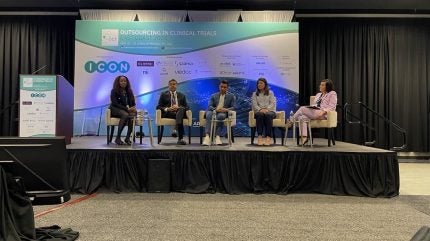
In a bid to answer the long-standing question of diversity in clinical trials, experts came together to address the lingering problems and barriers in patient recruitment, characterizing the constituents of truly diverse and inclusive patient populations with an emphasis on what diversity looks like in rare disease.
Though data is crucial for benchmarking and standardising throughout the drug development process, it is often quite disparate, with diversity limited to the collected data of age, ethnicity, sex, and race, according to Mohammed Ali, M&D Head of Reporting, Analytics, and Insights at Astellas Pharma.

Discover B2B Marketing That Performs
Combine business intelligence and editorial excellence to reach engaged professionals across 36 leading media platforms.
Ali joined experts on a panel discussing diversity, equity, and inclusion (DEI) in clinical trials at the 15th Annual Outsourcing in Clinical Trials East Coast conference, in King of Prussia, US.
“If you want to address a problem, you have to know exactly the details of the problem. So foundationally, you have to build your process and build the data around it to show what that is [aspect of the disease] that you want to address. Otherwise, the term diversity becomes so broad, that for any sponsor, it’s really hard to say if you are going to get it right,” Ali explained.
Particularly when it comes to rare disease, sponsors must have the tools, expertise, and people to comb through the data and build a patient population representative of the overall population that is already scarce given the nature of the disease, added Executive Director and Regional Clinical Operations Head, North America at Incyte, Dija Atta.
Ali claimed that how patients are being identified versus the epidemiology of the disease is the “fundamental problem” of patient recruitment that needs to be changed both in and outside of rare diseases. “You can’t keep processes using the same data source, the same vendors and expect a different outcome,” he said.

US Tariffs are shifting - will you react or anticipate?
Don’t let policy changes catch you off guard. Stay proactive with real-time data and expert analysis.
By GlobalDataWhat the industry is not effectively taking advantage of is the power of crowdsourcing and harnessing the social networks of patient forums and groups to identify and reach these diverse patients, said Ram Raju, former Senior Vice President, and Community Health Investment Officer at Northwell Health. Many of these groups are better at reaching patients and these are critical assets that need to be tapped into.
An understanding of the diverse communities being reached out to, and the capabilities to work with these diverse populations must also be primed to effectively diversify clinical trials, said Executive Director of the Rare Disease Diversity Coalition, Jenifer Waldrop. While the US healthcare system currently has a dearth in this area, the scarcity may be addressed with the assistance of organisations and advocacy groups, which act as the “influencers” of the space, Waldrop elaborated. The purpose of diversity in clinical trials is to understand the targets that have been identified based on the best knowledge of the disease. And this takes talent, time, and monetary resources in a way that traditionally hasn’t been done consistently, Waldrop said.




